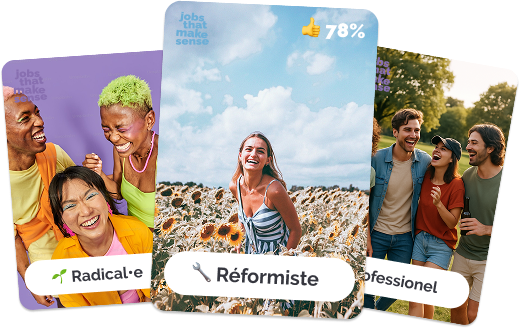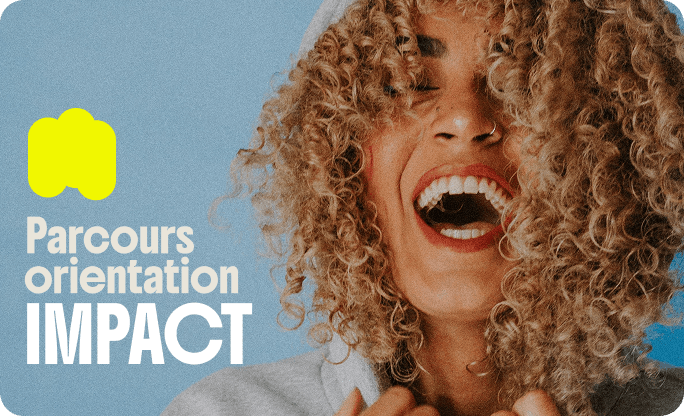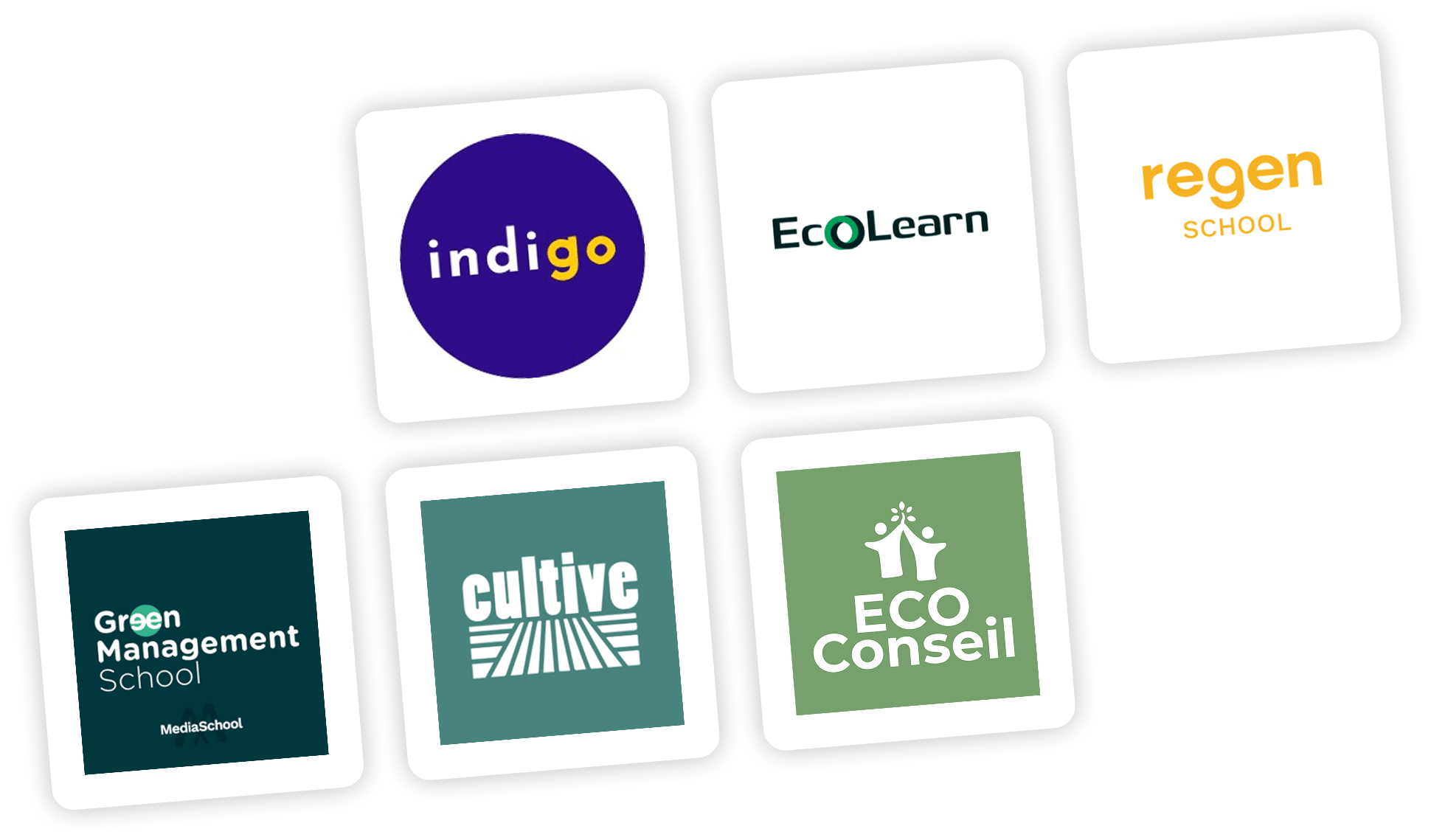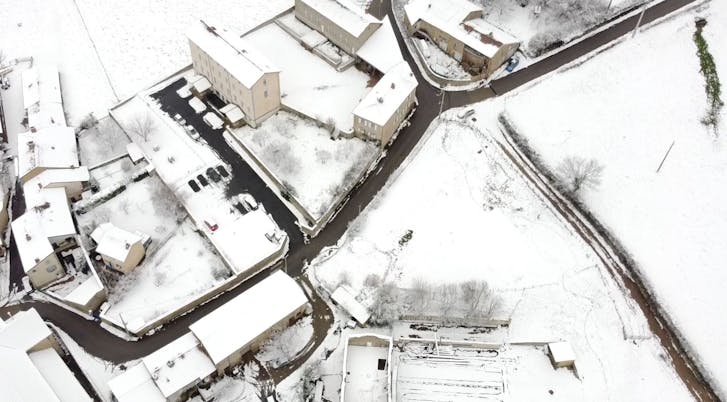Thinking, working and undertaking in the territories with the training courses of the Institute of Tramayes
Currently under renovation, the Institute of Tramayes is a training center that will offer training in a third place from April 2023. The Institute has just moved back into the premises of the former elementary school of Tramayes dating from the 19th century! What is special about the courses? To accompany young people in reorientation and people in professional reconversion to learn to work with their hands and their brain to undertake in rural areas. "Hands in the mud and head in the stars", as Benjamin, one of the founders of the Tramayes Institute, would say. He tells us about it!
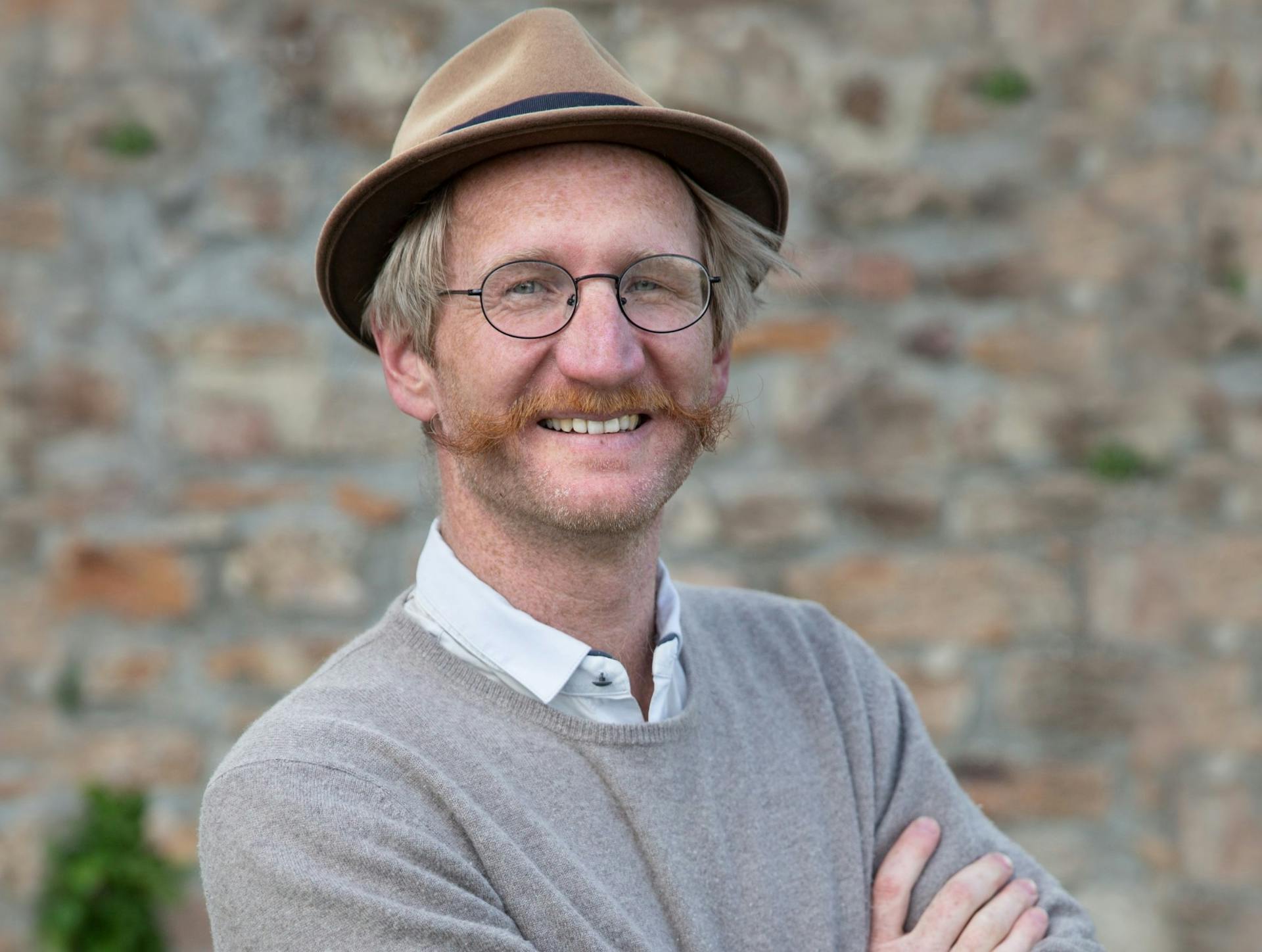
Why did you found the Institut de Tramayes?
The Tramayes Institute was born from the initiative of five people, all from the arcenciel France association, which gives project management courses in higher education institutions. We all acquired these skills as trainers through the association. Two of us have remained employees of Arc-En-Ciel, Guillaume and Marie, and three of us have reconverted to manual jobs: Axelle is a beer brewer, I was a plumber for 6 years and Valentin has raised goats for a few years.
Through our courses, we have noticed a growing interest of students to give meaning to their job, by getting closer to two things: the material and the decision. The five of us therefore wanted to create training courses to help these people think, work and undertake in the service of the common good, by working on three aspects: the heart, the hands and the head. When we graduate from high school, we often go into intellectual studies that specialize us and our desire, with the Institute of Tramayes, is to learn to rediscover the manual aspect of our abilities.
How does the manual aspect of your training take shape ?
It is central. On a daily basis, there is an alternation between manual and intellectual work. Every day the students will go to the market gardening field, to the workshops or to a craftsman's house for the manual part. Then they will go to the classrooms to learn history, sociology or philosophy. Then, in meeting rooms to work on group projects. Moreover, we offer training based on concrete projects. For example, the Tramayes Heritage Association has asked us to work on the renovation of a wash house. Our students will be able to work on the manual part through the renovation, the financial part to find the necessary funds to carry out the work and the communication of the project. On this project, we will also call upon notions of history and philosophy to teach the role of a washhouse in the city, for example.
Market garden, classrooms... what does the Tramayes Institute look like ?
We are investing in the former elementary school of Tramayes in which there will be offices and classrooms. We have also invested in two barns in which there will be metalwork and carpentry workshops and in a market garden farm.
Who are your courses for ?
To all those who want to work for the common good, who are not afraid to put their hands in the earth and who presume, at the very least, that rurality is a source of more solutions than problems. We are organizing short trainings that will start in April 2023 and long trainings that will start in October 2023. The long trainings are organized mainly for people who want to make a reorientation of studies with the 9-month Compass program, and those who want to think about a professional reconversion with the 10-week Azimut program.
What is the role of each member of the team ?
On a daily basis, there are 4 of us working at the Institute: Guillaume is in charge of the pedagogical projects and their coherence, Laurent is the workshop manager, Lucie is in charge of the communication and I am in charge of the overall management of the project, the coordination of the Third-Party Center, the work with the territory, the artisans, and the training. Marie, Axelle and Valentin are the administrators of the structure and make sure we don't go astray!
And you Benjamin, you are one of the initiators of the project. What made you want to found the Institut de Tramayes?
I have been a management controller, production manager in a wheelchair production factory, director of an association, I changed to plumbing, I did waste treatment in a social integration company, and then a teacher in a vocational school. I continued to teach at Science Po Lyon in parallel to all these projects. I realized through my different experiences that when you work with your hands, you have a lot of time to think, but this time is often occupied by distractions, like listening to music. On the other hand, in very intellectual jobs, we don't have time to think because our brain is constantly solicited. However, when we work with our hands, we have time to think about a lot of things, and we touch, feel and see reality, which is ideal for building theories: our mind is free to wander, it has the time and leisure to do so, and our body constantly reminds us of reality, which prevents our mind from raving. In addition to the fact that our school or educational system has many shortcomings and that many people are retraining to become professionals, it is also important to know how to deal with the realities of life.
Who are your local partners ?
We work with artisans, farmers, local authorities, local initiatives and local businesses to try to understand what their needs are and try to make them integrate the rural dimension. We will also build bridges with actors from all horizons. We want to work with everyone, not just people who agree with our ideas.
What will be the possible outlets for the people who have followed your training ?
There could be 3 levels: we imagine that our students will go towards professions in which they will work with their hands by being craftsmen or farmers. Then, there will be people who will put themselves at the service of the craft industry and the peasantry by facilitating the installation of producers and craftsmen, by creating cooperatives and businesses to sell their products for example. And finally, people who will work for local communities or companies so that artisans are more easily integrated into the production process and that local and rural circuits are favored.
To know more about it
👉 Here are the trainings of The Institut of Tramayes
